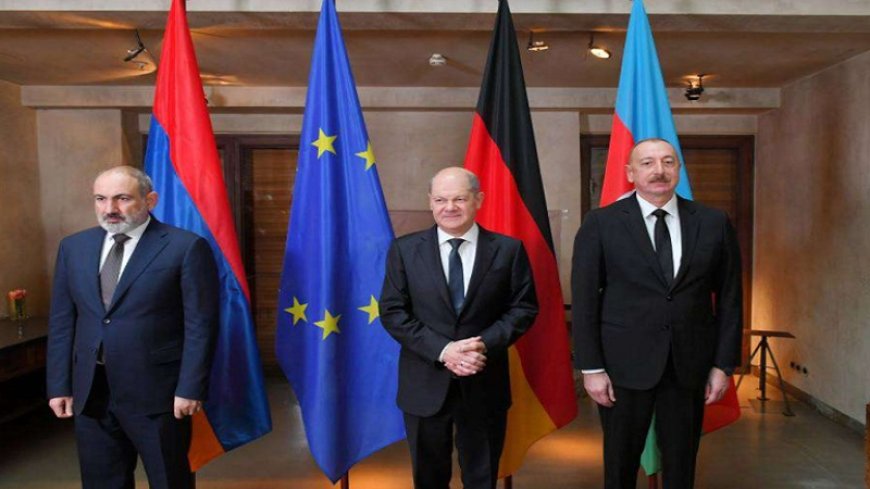Europe Commits to Supporting Peace Efforts Between Armenia and Azerbaijan

German Chancellor Olaf Scholz has underscored Europe's commitment to fostering peace between Armenia and Azerbaijan, highlighting 2024 as a pivotal year for stability in the South Caucasus. Scholz’s remarks came during discussions held in London at the European Political Community summit, where the future of the region was a central topic.
In a statement, Chancellor Scholz emphasized the critical importance of the current year for the peace process between the two nations. "This year is crucial for the South Caucasus," he declared. "It could potentially be a year of peace if both Armenia and Azerbaijan take further decisive and bold steps towards reconciliation."
Scholz revealed that he had engaged in substantive discussions with Armenian Prime Minister Nikol Pashinyan and Azerbaijani President Ilham Aliyev during the summit. These conversations, he noted, were aimed at bolstering the peace process and encouraging both leaders to advance toward a lasting resolution of their longstanding conflict.
"Europe, as a whole, is committed to accompanying Armenia and Azerbaijan on their path to peace," Scholz affirmed. He expressed optimism that Europe’s support would help facilitate enduring cooperation between the neighboring countries, which he believes is essential for regional stability and prosperity.
Europe’s Role in the Peace Process
The European Union and other European entities have increasingly become involved in efforts to mediate between Armenia and Azerbaijan, especially given the region's strategic importance and its history of conflict. European leaders have been advocating for dialogue and negotiations to address the root causes of the conflict, including territorial disputes and ethnic tensions.
The European Political Community summit, which took place in London, provided a platform for high-level discussions on various geopolitical issues, including the South Caucasus. The summit brought together leaders from across Europe to discuss collective strategies for promoting peace and stability in regions experiencing conflict.
Ongoing Efforts and Challenges
Despite recent diplomatic efforts, achieving lasting peace in the South Caucasus remains challenging. The region has witnessed intermittent violence and clashes, particularly over the Nagorno-Karabakh region, which has been a flashpoint in the conflict between Armenia and Azerbaijan. The recent ceasefires and peace talks have seen mixed results, and both nations continue to face internal and external pressures that complicate the peace process.
International mediators and peacekeeping organizations have been working to bridge gaps between the conflicting parties, advocating for constructive dialogue and practical solutions. The European Union, alongside other international stakeholders, has been actively involved in supporting initiatives aimed at reducing hostilities and building trust between Armenia and Azerbaijan.
Looking Ahead
As Europe continues to play a significant role in the peace process, the focus remains on encouraging both Armenia and Azerbaijan to engage in sustained negotiations and confidence-building measures. The hope is that with continued support and diplomatic efforts, 2024 can mark a turning point towards lasting peace and cooperation in the South Caucasus.
The international community will be closely watching the developments in the region, as successful peace initiatives could serve as a model for resolving other protracted conflicts globally.













































